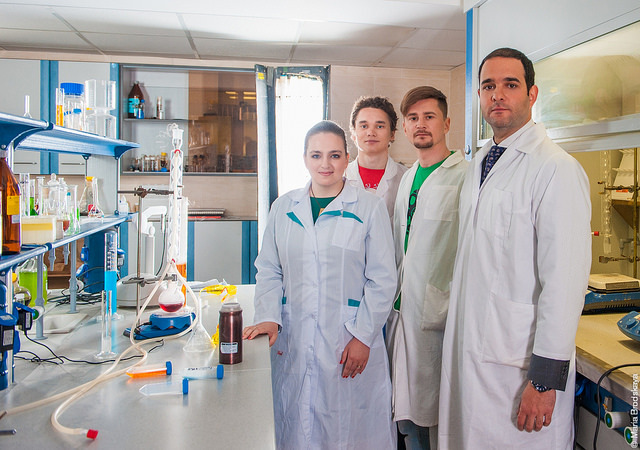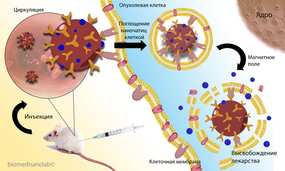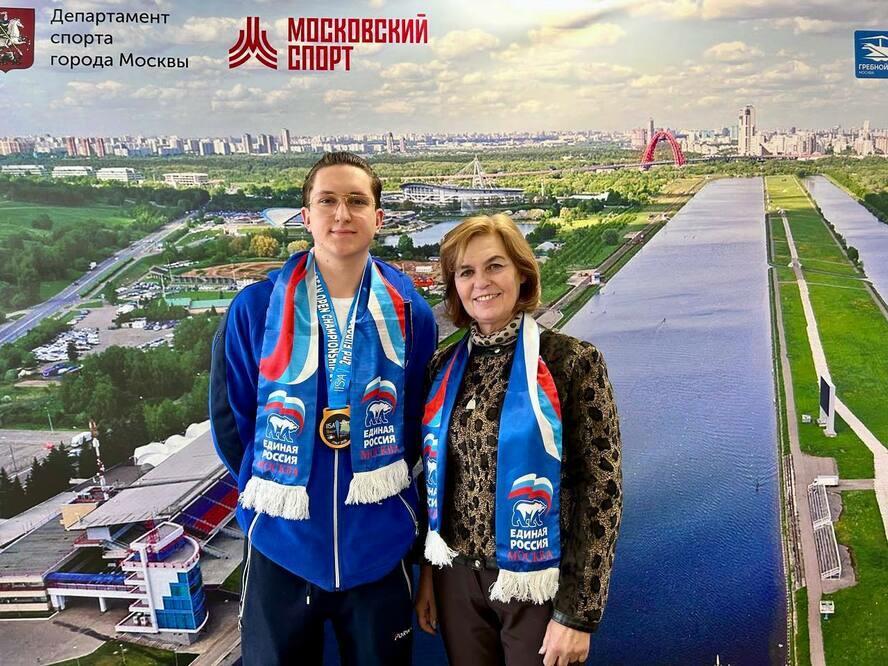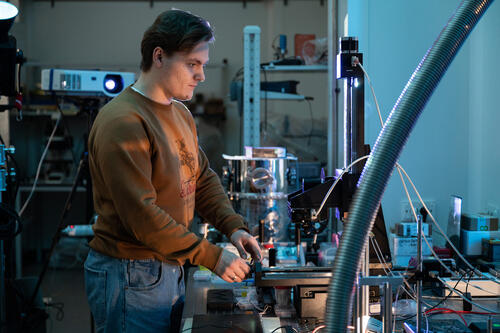The NUST MISIS science team, led by Dr. Alexander Majouga—head of the NUST MISIS Biomedical Nanomaterials Laboratory, is planning to start clinical trials of a new Russian nanoagent on the basis of magnetite, one capable of early disease detection through MRI technology, in 2018. The nanoagent is able to identify a brain tumor during the first stage, and can subsequently be used for the diagnosis of other cancer types as well.
For the very first time Russian scientists have managed to create a drug with an average size of just 40 nanometers and containing magnetite covered with biopolymer. The magnetite nanoparticles can be seen on MRT/MRI images, allowing doctors to diagnose a tumor in its very early stages. The new nanoagent is essentially an upgraded version of the tracers currently used in PET scans, with the added bonus of its compatibility with MRI technology—which has none of the radiation risks of PET scans. Similarly, the magnetite nanoagent itself, in contrast to tracers and other existing alternatives, is not toxic and is much cheaper than current options.
But not only does this technology help diagnose early-stage cancers, in the future it will also be used for targeted drug transport directly aimed at tumor cells. The magnetite is covered with a special substance, which acts as a vector to feel out receptors on the surface of tumor cells. After properly identifying faulty cells, the drug breaches those cells—a process that only affects the tumor cells and leaves the rest of the organism undisturbed.
“We have developed a technology which has no analogues in the world and which allows the release of drugs into specific tumor cells”, said the project’s lead scientist, Dr. Alexander Majouga.
“The NUST MISIS Biomedical Nanomaterials Laboratory, headed by Dr. Alexander Majouga, was established in 2014 as a result of the open international NUST MISIS grant competition and with the recommendation and support of the NUST MISIS International Scientific Advisory Council (ISAC). It is the first NUST MISIS laboratory working at the junction of medicine and materials science. Today, according to leading scientists in ISAC, the laboratory demonstrates significant results”, noted Alevtina Chernikova, Rector of NUST MISIS.
Since 2014 a joint group of Russian scientists from NUST MISIS, Lomonosov Moscow State University, and Pirogov Russian National Research Medical University (RNRMU) have been conducting research on the development of nanodrugs for cancer detection. The new magnetite nanoagent is just the first, but surely not the last landmark development to be made through this joint project.



